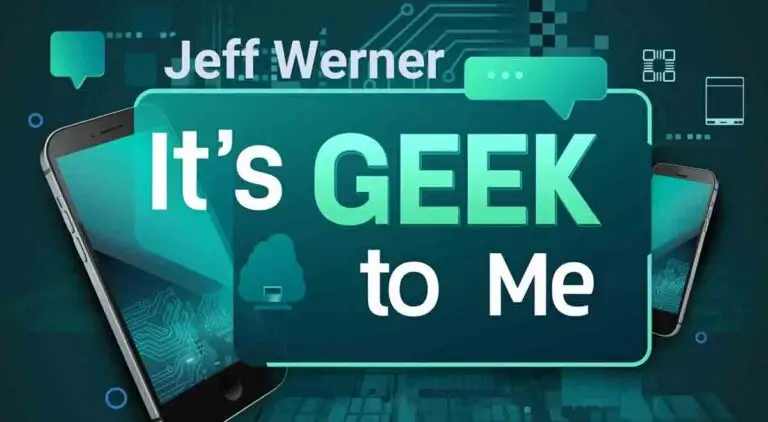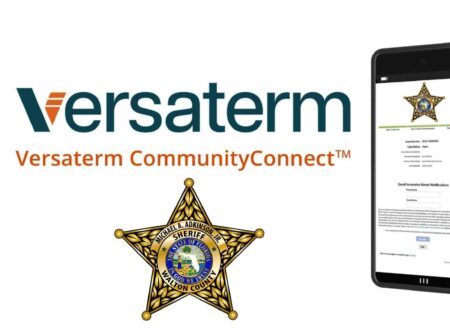FLORIDA —
QUESTION: I keep getting junk texts suggesting I need to back up my computer (or cell phone) info to iCloud. Is this real? If so, how do I do it?
– Nancy C.
Fort Walton Beach, Florida
THE GEEK’S ANSWER: Why, hello, Nancy! It’s always a pleasure to hear from you. I got curious before starting to write this, so I did some quick searches in the column’s archives. Would it interest you to know that, by my count, I have answered at least eight questions from you over the years? That certainly places you among my most prolific question-askers, and I appreciate you for it, especially these days when my queue is all but empty.
It sounds to me like you’ve already made up your mind that these texts are not “real” per se. After all, you did refer to them as “junk texts,” which, without even seeing them, I believe is an accurate characterization.
But your question provides an excellent segue for me to discuss SPAM and some of the ways you can identify it. Hopefully some of my readers can learn ways to protect themselves.
I do wish you had sent along a screen capture of one of the text messages so I could have had a deeper understanding of what you’re dealing with. But no matter. I’ve seen enough of this stuff that I think I have a pretty good idea of what they are.
So, the first thing that usually triggers me when I receive such junk is the sender information. In your case, I’m fairly certain that Apple—while certainly espousing the belief that backing up your device is a good idea—does not, in practice, actually care whether individual users do so, and certainly not enough to contact everyone personally to tell them so.
And if, for some reason, they did, the likelihood of them doing it via text message seems exceedingly low. So, I can’t help but wonder about the source of these texts, but I’d be willing to bet that it’s nobody from Apple, and it’s even likely that they came from outside the U.S., where many such scams seem to originate.
One pervasive scam that has lamely and repeatedly tried to victimize me in recent weeks is the “you have unpaid tolls” scam. Now, I live in Florida, where the only toll system in use is called SunPass. Not only were these messages about some other toll system, but one came from a private Gmail address and another from a Yahoo Mail address.
It is unlikely, in the extreme, that anyone trying to legitimately collect on a debt would be using a free email account as their business email. Scammers capitalize on the inattention or ignorance of their victims and try to create a legitimate-looking website, text, or email to convince people to give up their private information.
This leads to the next clue that something is a scam: language and grammar.
As I said above, many of these scams originate overseas, and the perpetrators either don’t speak English or speak it poorly. They often rely on language translation services to convert from their native tongue to English, which can cause grammar foibles that native English speakers can spot easily.
Often, the language is far more informal than you might expect from a note attempting to collect a debt, with wrong words used and spelling and punctuation errors. Gee, come to think of it, most of what I read on social media falls into this category. See kids? That grammar stuff that you thought you’d never use in real life actually comes in pretty handy!
To answer your question, Nancy, it is a good idea to back up your devices, including your phones, tablets, and computers. iCloud is an Apple-based service, and as such, it is not a common practice to back up non-Apple computers there, though it is possible to back up both Macs and PCs to iCloud.
In both cases, you would use your iCloud Drive. You can also back up your iPhone/iPad to iCloud. The details of exactly how are beyond the scope of this issue, but I should mention that your Apple account includes five gigabytes of free storage. This is enough for a reasonably small backup, but to take care of all your devices and perform full and incremental backups, you’ll need to purchase more space or find another alternative. I’ll dedicate some space in a future issue to this topic, so keep reading!
To view additional content, comment on articles, or submit a question, visit my website at ItsGeekToMe.co (not .com!)
Jeff Werner, a software engineer based in Niceville, Florida, has been writing his popular “It’s Geek to Me” tech column since 2007. He shares his expertise to help readers solve everyday tech challenges. To view additional content, comment on articles, or submit a question, visit ItsGeekToMe.co (not .com!).






